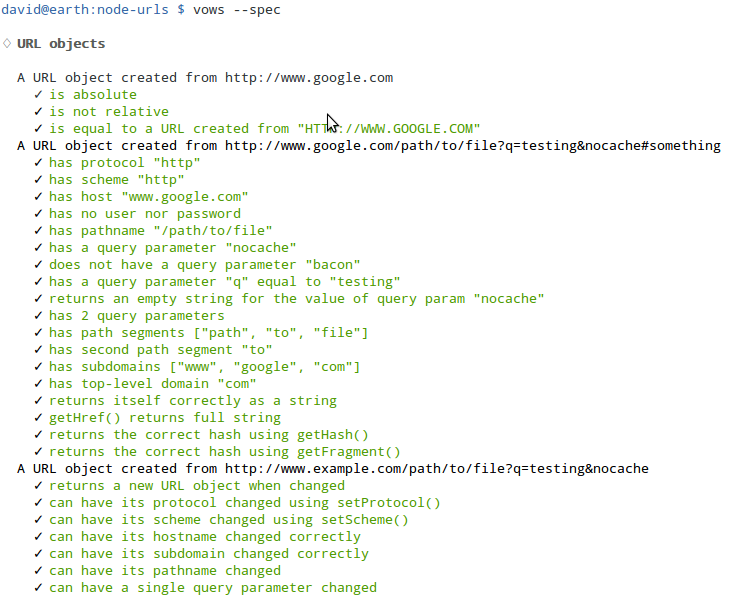I’m a big fan of Value Objects - some of the most useful classes I’ve ever written have been lightweight wrappers around strings.
For my first contribution to the node.js ecosystem, I’ve published a simple, immutable URL object to the Node package manager (npm) directory. It provides a light-weight, immutable URL object that encapsulates the functionality of the existing ‘url’ and ‘querystring’ modules in a single object as well as offering various extension methods that make working with URLs easy.
Source and detailed docs available at http://github.com/codeinthehole/nurl -but here’s some sample usage for dynamically building a URL:
var nurl = require("nurl");
var baseUrl = new nurl.Url()
.setProtocol("http")
.setHostname("api.example.com")
.setPathname("search");
var searchUrl = baseUrl.setPathSegment(1, "my search term");
searchUrl.toString(); // => 'http://api.example.com/search/my%20search%20term
All components of a URL are exposed as read-only properties as well as through getter functions.
var u = nurl.parse("http://www.example.com/path/to/somewhere?q=node.js");
u.getSubdomains(); // ['www', 'example', 'com']
u.getPathSegment(0); // 'path'
u.getQueryParam("q"); // 'node.js'
u.getQueryParam("p", "a default value"); // 'a default value'
All very simple but potentially quite useful thanks to the ubiquity of the humble URL.
Writing this module introduced me to some of the excellent software already available for node.js. Firstly, the package management system npm is brilliantly simple to get started with, and to publish modules for all to use. Secondly, I’m a huge fan of the Vows BDD package. Writing tests in javascript offers some cunning possibilities such as dynamically building test-suites at run-time - this is great for this package as I can create a fixture object of URL strings and their decomposition into components, then build the context dynamically.

All feedback, forks and pull requests gratefully accepted.